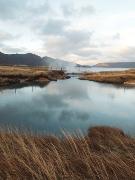Diversifying the renewable energy mix is imperative for countries in order to become more energy independent, or in Africa’s case, meeting domestic and regional energy demand as the case may be, and reaching off-grid users. One form of energy that doesn’t get as much face time as wind, solar, hydro and the likes is geothermal.
The East African Rift Valley, which includes
Fernando Echavarria noted in an interview with Alternative Energy Africa for its 2009 March/April issue that while many African countries have identified geothermal prospects, it was difficult to attract investors due to the “high upfront costs of exploration and production drilling and plant construction.” Echavarria, Ph.d at the US State Department’s Bureau of Oceans, Environment & Science, also said, “Most countries are battling the uncertainties of how to set up the financial and legal infrastructure necessary to attract the private sector that is necessary to actually construct the public private partnerships to get this important industry established in their countries.”
In an interview with Alternative Energy Africa, Reikjavik’s Managing Director of Business Development Gunnar Gunnarsson discussed the company’s ventures into Djibouti saying that it was actually easier than anticipated making a contract. He said in order to mitigate risk, “Make a good contract, establish a relationship with the national and local governments [of the particular country], and get the World Bank and European Development Bank involved to [ensure proper facilitation of the agreement].” Gunnarsson said that the time frame on establishing a project in
Potential investors should look into obtaining insurance from the World Bank in order to receive equity on projects.
Echavarria said that Reykjavik could be directly impacted by the economic crisis as
Echavarria also noted that “the crisis seems not to have affected Germany’s Geothermal Program or France’s new commitments for assistance for geothermal development in Ethiopia and beyond.” Alternative Energy Africa reported on February 7 that Germany’s largest producer of crude oil and natural gas Wintershall will provide warm water and heating generated by geothermal power in a municipal water park located in Landau, Germany.
Although the geothermal sector has expanded, it has still reaped the backlash of the global economic crisis, according to “The Geothermal Report: Edition 5, 2009.” However, with Ethiopia’s desire to become the first African nation to export renewable energy and interconnection schemes being put in place, could geothermal play a larger role for the continent?
Exploration is currently ongoing in Uganda to uncover its geothermal potential while some experts place bets on Tanzania holding a substantial amount of geothermal capability. Financing projects in Africa always comes with a certain level of risk. However, the riskiest of decisions make for the greatest returns.
If you have any questions or comments regarding this article, please email lgraves@AE-Africa.com and be sure to read a more in-depth update on this topic in our May/June publication.
Subscribe to Alternative Energy Africa today for more in depth news in the alternative/renewable energy sector and be sure to grab your risk-free trial to see what we’re doing in 2010.

